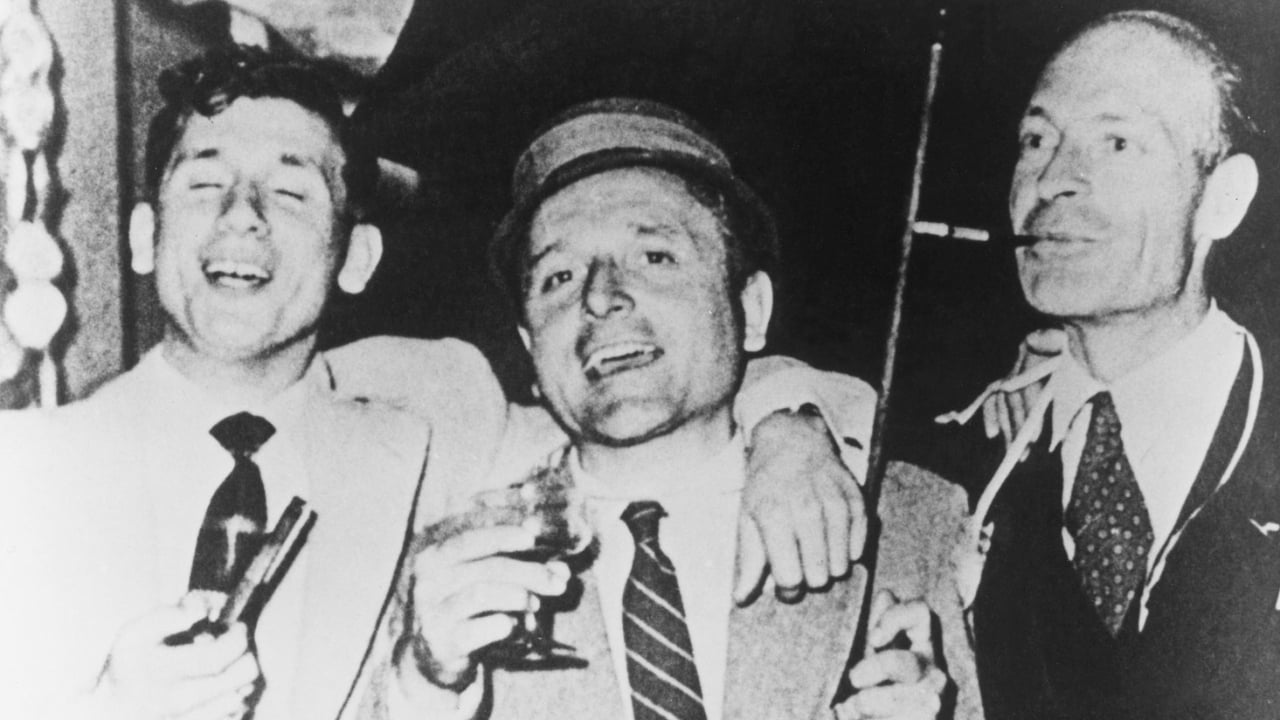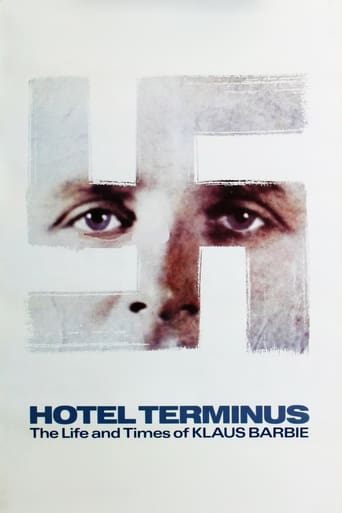

Four and a half hours long, 'Hôtel Terminus' may test the viewer's endurance, but it is well worth the effort. Even though Klaus Barbie's youth and time in Lyon are given a good deal of time (I still would have preferred a little more, though) and attention, the greater part is spent on his life after WWII. I only knew a little about Klaus Barbie in connection with the French Vichy regime, but this documentary filled in countless blanks. There is a great amount of information here, and I had to 'rewind' a couple of times, but it never becomes truly chaotic.Marcel Ophüls' particular and - understandably - fierce approach to the 'subject' is impressive to witness, and adds to the thorough investigation into this German war criminal. How the Americans, Germans and even members of the Vatican (and others) unscrupulously were able to aid to his 'revival' in South-America is downright shocking (some information I may have vaguely picked up on when I was much younger, but ), but this documentary also shows how perseverance and diligence pay off in the end - endless kudos.In the final part there was something going on that confronted the state and people of France with their own past (after WWII) and almost thwarted the course of justice: the torture tactics (France) used in Algeria, even if they are, considering the circumstances, rather far apart. An interesting notion nonetheless, and one that can not be denied.One could try seeing this in stages, but I'll warn you that it may be far too fascinating to stop once you've started.9 out of 10.
... View MoreI found this on Hulu, and I am obsessed with movies about WWII (the Holocaust in particular). Armed with my smartphone, I dove in. Initially, I was confused because the director/interviewer jumps into the French Revolution shortly after having some associates of Klaus Barbie describe his childhood. Then these leaders of the Revolution start talking about the betrayal of Jean Moulin. I had to hit pause and check it out on the web. After getting a bit more background, I moved on. I was disgusted when I heard back pedaling from Rene Hardy and Francoise Hemmerle. Ultimately learning that Hardy was framed, and seeing an interview with him towards the end of his life, I did start to pity him. However this Hemmerle woman would chuckle when talking about atrocities of torture then say "oh, I helped I the resistance, then proceeds to refer to the film 'Night & Fog' as "propaganda". This is where the running theme of "oh it was so long ago." This seems to be a running theme with the people who helped this butcher later on. The narrator really doesn't talk much about the Holocaust too much during the film, but focuses on the CIC (American intelligence) utilized Barbie as an informant. Woah, stop the bus! Then what really foxed me was if you Google any of these Americans, not a whisper. The person who drove me insane with his non-answers was a certain Eugene Kolb, who was Barbie's handler. He states that based on his relationship with Barbie, he doesn't believe he needed to use torture to get information out of people. I think that is similar to saying the Holocaust didn't happen. Every word out of his mouth is a contradiction or a back pedal. I knew that the US wanted nothing to do with the Jews until the very end of the war. This disgusts me as a human being. The film moves along with more people who "were just doing their jobs" (much like those who dropped Zyklon B into gas chambers) in the hunt and capture of Klaus Barbie. Turns out, that Barbie was involved in the capture of Che Guevara. The film alludes to this, but that was another topic of my own research. One person who is actually more candid than you would think is Barbie's former bodyguard. He was apprehensive at first, but through his story he tells of how he has to get people to go shopping for him as he was persona non grata in Bolivia. I think he realizes as he is speaking with Maurice that if he tells the truth, it may benefit him. It's a bit of a buildup, but watching him break is rather interesting. Well, as most know, there comes a point Barbie needs a lawyer at his trial. This lawyer is Jaques Verges, a well known defender of terrorists from Palestine and Algeria, and also a cohort of the leaders of the Khmer Rouge (this I learned more about from another film, Terror's Advocate). He did what he did more because he wanted France to acknowledge what they did to the French in Lyon and in Algeria. This is touched on, but never fully explained. The jury to me is still out on him, only because there is logic behind his intentions, even though I don't agree with him politically, or on a level of humanity. I won't ruin the end, but this four hour documentary is well worth the watch. I will say that it would be wise to get caught up on the French Resistance a little beforehand. Because I was so interested, I purchased The Sorrow and the Pity, so stay tuned for that review!
... View MoreAs an affectionado of WWII movies, I was excited to discover this documentary at our local library. However, the problem I had with it was that I needed help understanding the background of this part of WWII. I know a lot about this period, but not about occupied France. For the length of this movie, you would have thought they could have spend a few minutes getting us all up to speed. What's the prerequisite for this course?
... View MoreThere are a group of movie (and TV) producers who think that subtitles are so chic!! Nothing could be farther from the truth and this movie is ruined by subtitles of people who didn't need to have their voices heard to be believed. The truths about the Second World War are having a hard enough time today being believed without the distractions that subtitling introduces.
... View More